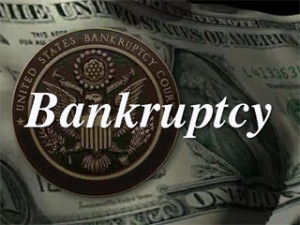Top Jobs Filing for Bankruptcy
It’s a common misconception that only the unemployed or unlucky have to file for bankruptcy. Now more than ever it is becoming apparent that bankruptcy can strike anyone.
Within the last 12 months, thousands of clients have come to LegalMatch.com seeking the advice of bankruptcy attorneys. These are the top fifteen reported occupations of those clients: 
| 1. Unemployed |
| 2. Retired |
| 3. Sales |
| 4. Disabled |
| 5. Self Employed |
| 6. Truck driver |
| 7. Teacher |
| 8. Customer Service |
| 9. Retail |
| 10. Secretary |
| 11. Realtor |
| 12. Student |
| 13. Cashier |
| 14. Laborer |
| 15. Nurse |
Of this top 15, unemployed, retired, and disabled made up almost 50% of the total. It shouldn’t come as much surprise that people unable to earn an income will have to file for bankruptcy. Other jobs are unsurprising as well: students will perpetually have student loan debt problems; realtors’ markets are always volatile; truck drivers and teachers simply aren’t paid a salary commensurate to their importance in society; and the self employed knew there was a risk when they decided to hang their own shingle.
Some jobs do raise an eyebrow however. Nurses, for instance, made U.S. News and World Report’s list of Top 30 Careers in 2008.
Regardless of the relative merits of the job, it harms us all when those who are disabled or those who have retired must file for bankruptcy. This is not an issue of compassion for people down on their financial luck; when people can’t pay their creditors, everyone in the food chain suffers. It may sound easy to simply blame the financial woes of the retired on poor planning, but how many of these people supposedly did everything right? They heeded the calls to invest, to have a portfolio, a 401K. Unfortunately, so many of these once sound investments have lost tremendous value. (Or have been the victims of outright fraud.)
Those that question the wisdom of safety nets sometimes ignore the fact that these safety nets can act as an indirect “stimulus.” If a disabled worker gets SSI and can pay his bills and avoid bankruptcy, perhaps the bank that was relying on his cash has one less debt to worry about on its balance sheet. Instead of the money going from the treasury to the bank with everyone filing bankruptcy in-between (and loan markets drying up in the process), money goes from the citizen to the bank. The government still pays, but everyone else can pay their bills. (And the Feds don’t have to pay twice as much to clean up any mess.)
Safety nets, or “entitlements” as some would like to mischaracterize them, don’t just pay for the person who needs them. They help the system by helping people and banks alike avoid costly bankruptcy cases. As we are witnessing, the ripple effects of a lot of people not being able to pay their bills costs all of us a whole lot of money.

Comments